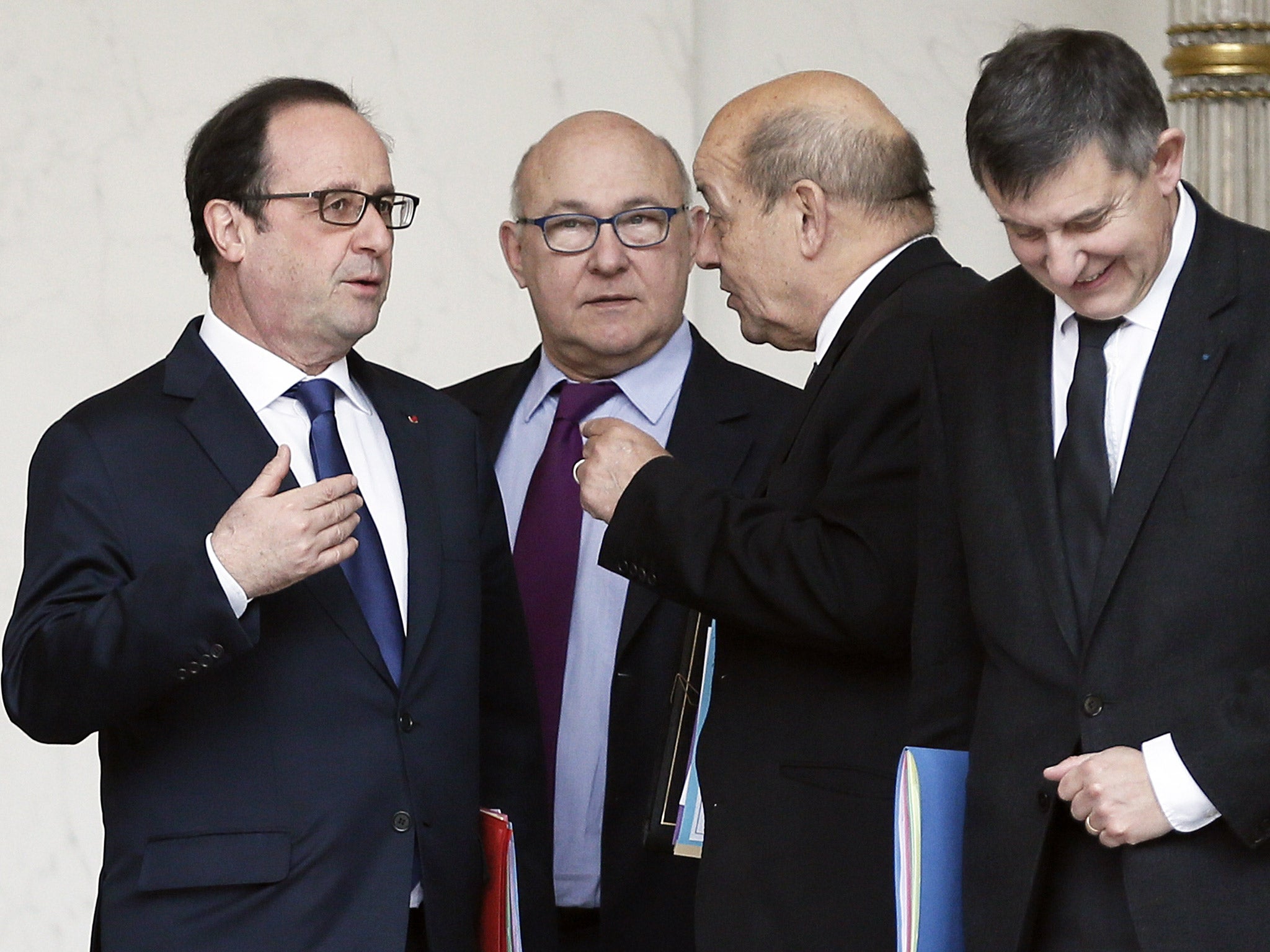Politician and 'friend of President Francois Hollande' said he only 'liked journalists with big breasts', claim French female reporters
40 political reporters said it was time to end the 'lascivious paternalism' to which they were routinely subjected to in the French corridors of power

A group of female journalists in France have blown the whistle on the repeated sexist comments and behaviour of the country’s male politicians.
Under the banner headline “get your paws off”, 40 political reporters said it was time to end the “lascivious paternalism” to which women journalists were routinely subjected to in the French corridors of power.
A lengthy article in Libération listed examples of sexual harassment, and sometimes outright sexual blackmail, practised mostly by older, male politicians and government officials.

An unnamed politician and “friend of President François Hollande” was quoted as saying that he only “liked journalists with big breasts”. In another instance, a member of parliament door-stepped by female TV reporters was reported to have said: “You are street-walking, Are you looking for a client?”.
A presidential candidate refused to answer questions from male journalists but spoke to a woman reporter because, he said, “she is wearing a pretty dress”.
Female journalists are constantly bombarded, the article said, with text messages offering information in return for a “meeting over a drink” or “dinner on Saturday night”.
The article said: “We thought that the Dominique Strauss Kahn affair had started a new era and the macho habits, which symbolise old fashioned politics and attitudes, were on the way to extinction. Alas no,”
Mr Strauss-Kahn, the former French finance minister and IMF chief, was accused in 2011 of, amongst other things, sexually assaulting a young journalist, Tristane Banon, nine years before. She told police that Mr Strauss-Kahn invited her to an apartment for an interview and then attempted to rape her.
Under police questioning, the politician admitted attempting to kiss the journalist and writer but denied any attempt at rape. Investigators dismissed the rape allegations. They concluded that Mr Strauss-Kahn had committed a sexual assault but that the time limit for prosecution had expired.

The habitual harrassers of female journalists come from all political parties of both the left and the right, the 40 journalists said yesterday. Many other French politicians, especially younger ones, behave correctly towards women, they said.
A large number of polticians and officials “at all levels” habitually act in a sexist or predatory manner. If challenged, the article said, they claim that their comments were “only banter” or part of “the French art of seduction”.
The article also addressed obliquely the question of whether some female journalists use sex appeal to gain information. The article pointed out that in the 1970s, Françoise Giroud of L’Express, the first woman to edit a French weekly news magazine, boasted that women journalists were much better at extracting information from male politicians.
Love affairs and romantic partnerships between politicians and journalists are common in France. Recent examples include President Hollande’s ill-fated partnership with the Paris Match journalist Valérie Trierweiler.
It was time, the article said, to put an end to the “ambiguity” implied by Francoise Giroud in relations between make politicians and female reporters in France. Women in political journalism, they said, actually found it harder than male colleagues to get close to politicians because they feared that friendliness would be misunderstood or exploited.
The article said: “We avoid one-on-one meetings as much as possible. We are permanently on our guard against use of the familiar ‘tu’ instead of ‘vous’ to preserve the proper distance between the journalist and those they write about.”
The true source of the problem, the article concluded, was that politics in France remained dominated by old men – hence the phrase “lascivious paternalism”.
“As long as politics remains mostly in the hands of heterosexual, 60-something males, nothing will change,” the women concluded.
Only 16 of the 40 female reporters signed the article. The others said that they wished to remain anonymous because their positions at work were already “complicated” enough.
Join our commenting forum
Join thought-provoking conversations, follow other Independent readers and see their replies
Comments